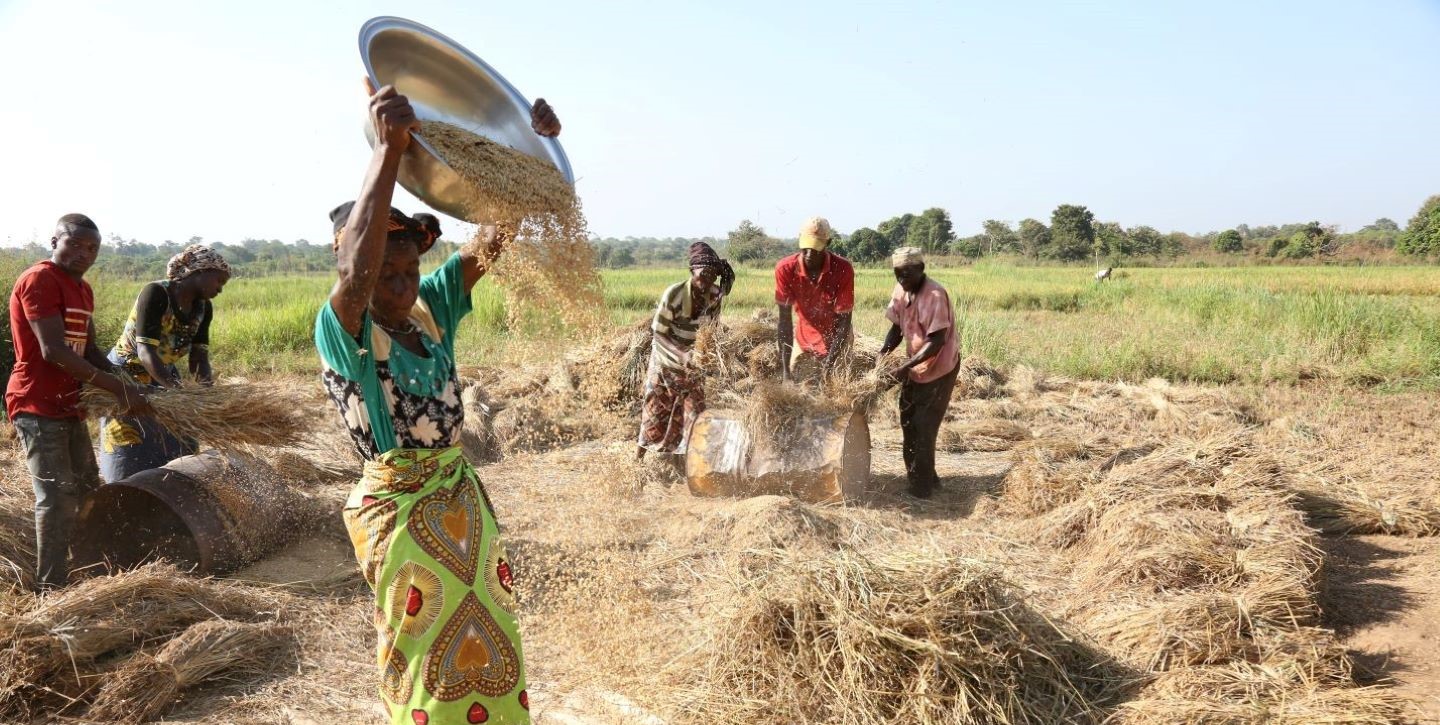IFAD President Alvaro Lario heads to Finance in Common Summit in Côte d’Ivoire
IFAD Asset Request Portlet
Publicador de contenidos
IFAD President Alvaro Lario heads to Finance in Common Summit in Côte d’Ivoire
17 octubre 2022
Rome, 17 October 2022 – The President of the International Fund for Agricultural Development (IFAD), Alvaro Lario, will attend the Finance in Common Summit co-organized by the African Development Bank and the European Investment Bank on 19 and 20 October 2022.
With the world facing tremendous challenges such as increasing hunger and poverty, as well as devastating climate change impacts, the Covid-19 pandemic and the war in Ukraine, the summit comes at a crucial time.
The confluence of crises has had devastating economic and social consequences, exposing weaknesses in global food systems and sparking a food crisis.
As a UN agency and international financial institution, IFAD recognizes the investment power public development banks (PDBs) can bring to bear on these problems. Massive targeted investment to benefit the world’s poorest people could make a huge difference. At the Summit, President Lario will make a plea to agricultural PDBs for a major increase in funding desperately needed to help small-scale producers adapt to climate change, increase agricultural production and develop value chains for local markets.
In partnership with Cassa Depositi e Prestiti d'Italia and Agence Française de Développement, IFAD and other PDBs launched the Platform for Sustainable and Inclusive Food Systems in 2021. This was a significant step to help PDBs to provide financial services that meet the needs of small-scale agricultural producers. The platform also serves to stimulate private sector investments in rural small and medium enterprises that are essential for the transformation of food systems.
Small-scale farmers in Côte d’Ivoire, and in Africa as a whole, often hold the key to the successful solutions needed to meet global challenges. Increased investments in commodity value chains, climate resilience and employment opportunities in rural areas help rural people increase their incomes and improve their food and nutrition security, and create jobs for young people, strengthening communities.
Lario will also meet with high-ranking government officials to discuss the importance of investing in climate change resilience to achieve zero hunger and poverty targets in the country by 2030. He will then travel to Korhogo in northern Côte d’Ivoire to visit the IFAD-supported Agricultural Value Chains Development Programme (PADFA) where he will see first-hand how programme participants, in particular women and young people, have improved their lives, and discuss with them what further challenges they face.
PADFA provides small-scale farmers with drought-resistant seeds, inputs and training that have led to crop yield increases, and seeks to improve post-harvest activities – packaging, storage, processing and marketing – for rice, vegetable and mango value chains.
“I used to harvest 19 bags of rice. Thanks to the rice seeds and inputs I received from PADFA, now, I can harvest nearly 30 bags,” said Brahima Silué, PADFA beneficiary from Nahoualakala village. “My household consumes part of the rice I produce and I sell the surplus. With the income, I can afford to cover all my family’s needs, which was not the case before,” he added.
Since 1984, IFAD has financed 12 rural development programmes and projects in Côte d'Ivoire for a total investment of US$436 million, of which US$214 million came from IFAD's own resources. These investments have benefited nearly 640,000 households in Côte d’Ivoire.
Press release No.: IFAD/51/2022
IFAD is an international financial institution and a United Nations specialized agency based in Rome – the United Nations food and agriculture hub. IFAD invests in rural people, empowering them to reduce poverty, increase food security, improve nutrition and strengthen resilience. Since 1978, we have provided US$23.2 billion in grants and low-interest loans to projects that have reached an estimated 518 million people.
A wide range of photographs of IFAD’s work in rural communities are available for download from its Image Bank.